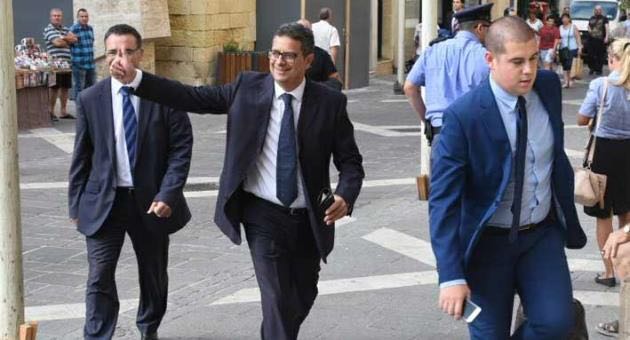No good can come from bad people
When Joe Azzopardi interviewed Adrian Delia on Sunday evening, a couple of people commented that they liked the interview and that Delia “gave good answers”. One of them was my friend David Thake, whose Facebook comment in this regard ended up illustrating a news article in the Times of Malta. He also added that Delia should now work to clear his name of the “accusations” made against him.
I messaged him.
“Even Muscat gives good answers (in the eyes of many people). So do clever criminals in the dock. The point is whether they are honest answers not good answers. And they’re not.
“Oh, and another point: by saying that Delia should work to prove that the “accusations” (note, not revelations) are untrue, what you are saying in effect is that he should prove me to be a liar. I think in these circumstances silence is the best option.
“Party leaders are not like naughty toddlers: you don’t have to look for something nice to say about them. This is like when Muscat got in and everybody began looking for nice stuff to say about him, coming across in the process as feeding the lion so that he wouldn’t attack them.
“If you don’t like someone, you don’t have to say nice things about them. It’s that simple.”
The proper way to assess people – and this is standard anywhere else in whatever field you’re looking at – is to work out whether they are a good character or a bad one, or somewhere in between, which means a weak character. No good can come from bad characters, so you can take the rest from there.
I grew up in an environment where the extended adult network around me assessed people in that way: good/bad person, decent/indecent person, good character/bad character, spineless, weak character, poxt, żibel, raġel sew – and it rubbed off on me. It taught me that the point of departure in any situation is to make a character assessment of the person you are dealing with and to consider everything that follows in that precise context.
In other words, no good can come from bad people, weak characters will let you down and cannot be trusted not because they are malign but because they are weak, and you should look not at the words that are said but at the character of the person saying them. I have made many mistakes in this regard over the years, with consequences that have ranged from insignificant to highly damaging, but the more time passes the fewer such mistakes I make and if I assess a man as fundamentally untrustworthy, then I am not going to admire him for his “good answers”, but say what an unconvincing liar he is.
When I entered adult life one of the first things I noticed is that Maltese society in the main does not assess people in the way I was taught to do from childhood, and that people tend to take others at face value until they have a direct, personal experience which teaches them otherwise. Unless they have that direct, personal experience which teaches them unavoidable truths, they will continue to take the other person at face value and will refrain from making a character assessment.
I used to think that it is because they haven’t the will or the inclination, and eventually I realised that it is because they don’t have the skills. Because when they are motivated to make a character assessment, they do this at face value too, and mark good people down as bad because they’re reading all the wrong signifiers, and bad people down as good.
But fundamentally, it’s because they are loath to make a character assessment at all, and to mark somebody down as bad, good, weak or spineless. I blame religious-dogma-based indoctrination from early childhood, in which people are taught to repeat that they should “condemn the sin but not the sinner”.
Fortunately, I was spared the dogma classes because they were not mandatory in the 1960s and 1970s, and the adults around me were realistic about human nature anyway. If a man did a bad thing, nobody said: “Condemn the sin but not the sinner”. I well into adulthood when I first heard that expression from strangers, and I wondered what on earth it meant.
No, the adults around me were more likely to have said, in response to news of what somebody had done: “Kemm hu poxt. Mur afdaħ żibel bħal dak biex issib ruħek fil-frisk.” Sin and sinners simply didn’t come into it, nor did forgiveness. It was all about trust and integrity.
My character assessment of Adrian Delia is that he is not to be trusted. I wouldn’t want him to marry my daughter if I had one, and I don’t think he should be in charge of anything that affects my life or anybody else’s, and certainly not the running of an Opposition party or a government. That assessment is a fundamental one. It therefore follows that good answers to interview questions are neither here nor there.


